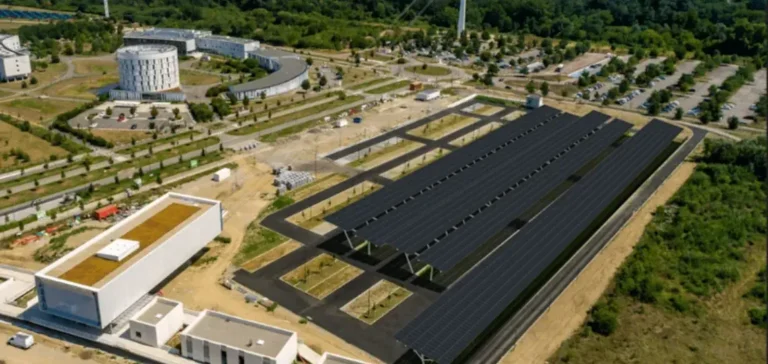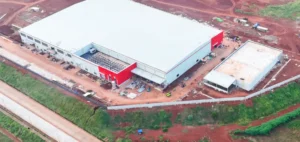A 7,001 m² solar power project has officially been launched at the Oncopole park-and-ride (P+R) in Toulouse. The facility will be built by Belgian company Virya Energy, selected by Tisséo Collectivités under a 30-year public-private partnership. Preparatory works began on August 28, with commissioning expected in summer 2026.
Private sector-driven investment
The operation, valued at EUR2mn ($2.16mn), will be entirely financed by Virya Energy. The company will receive revenues from the plant’s operations while paying an annual fee to Tisséo Collectivités. This fee includes a fixed part of EUR18,400/year ($19,900) and a variable part capped at EUR21,000/year ($22,720), depending on electricity volumes fed into the local energy loop.
Out of 541 parking spaces, 300 will be shaded by 3,504 photovoltaic panels. These solar canopies will deliver 1,577 kilowatt-peak (kWp) for an expected production of 1,992 megawatt-hours (MWh) in the first year.
A territorial self-consumption strategy
This project is part of a broader energy initiative planned by Tisséo Collectivités for the 2026-2030 period. Toulouse Métropole’s energy master plan sets a target of 206 MWp photovoltaic capacity by 2030. Several park-and-ride facilities and transport infrastructures are included in similar projects based on self-consumption.
In parallel, Tisséo has launched studies for connecting three metro sites (Borderouge, Ramonville and Argoulets), representing an installed capacity of 3.2 MWp. A first commissioning is expected in the second half of 2026. At the Daturas site, a 4.8 MWp project is also under study with the objective of achieving full energy autonomy.
A structured timeline and progressive rollout
The project timeline began with a call for expressions of interest in July 2024, followed by the selection of Virya Energy in December. The 30-year partnership agreement was signed in February 2025. Additional projects entrusted to Tisséo Voyageurs are underway at the Mesplé, Basso Cambo and Garossos P+R sites, totalling 482 kWp.
The strategy aims to cover up to 10% of Tisséo’s energy needs through in-house production. The shift toward individual or collective self-consumption models represents a notable evolution in the energy management of public urban transport operators.






















